I named this site Fit Recovery because I wanted to emphasize the incredible synergy between exercise and addiction recovery. Once you’ve resolved to quit or cut down on alcohol, activity can play a huge role in your efforts to recover from dependence and transform your life.
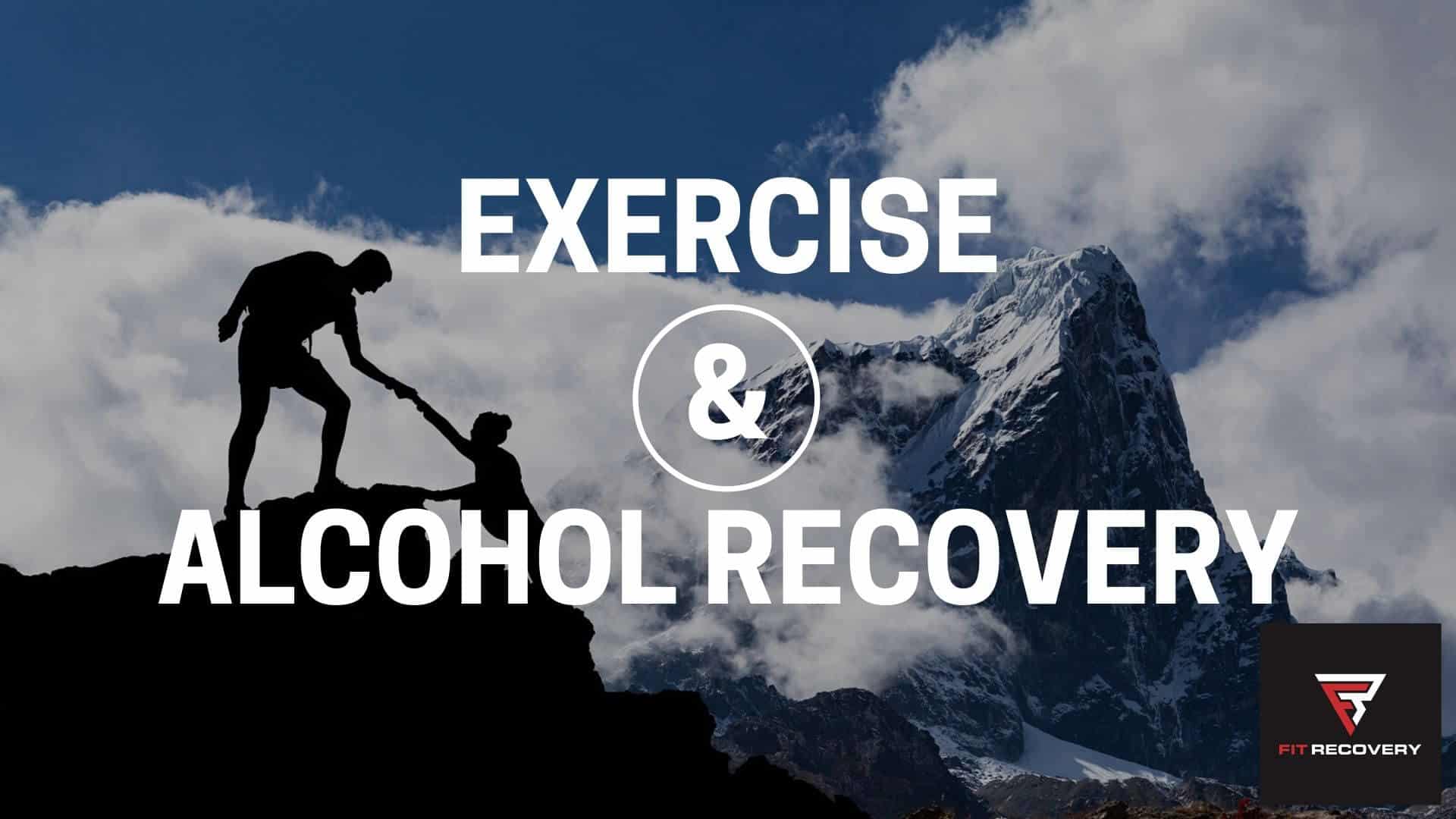
The early phase of my recovery was made possible by iron bars and plates.
During this phase, I hadn’t yet devoured the books, articles, and studies about nutrition and supplementation that would allow me to break free from post-acute withdrawal syndrome.
Lifting weights has always been my favorite form of training. Watching my muscles grow, and feeling myself get stronger over time, gave me a physical metaphor for beating bad habits. My physique became a symbol of my ultimate victory over alcohol addiction.
No matter what kind of activity you choose, I can promise you that you’ll rewire your brain and improve your sense of life in ways you can’t yet imagine.
If you’re interested in understanding the science behind this incredible process, then read on.
Proven Benefits of Exercise in Addiction Recovery
1) Endorphins
Movement releases painkilling and euphoria-inducing compounds called endorphins, which can make you feel good for several hours following a workout.
Low levels of endorphins can be partly genetic and are associated with feeling sad, sluggish, or disinterested in everyday activities.
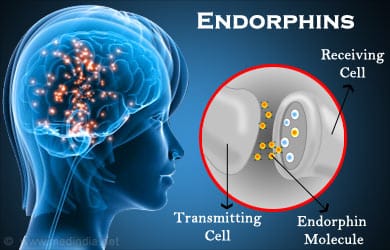
Releasing endorphins through workouts can help people shrug off setbacks and even overcome serious trauma.
2) Serotonin
Aerobic exercise in particular has been shown to increase the production of serotonin, a brain chemical that contributes to relaxation, confidence, and sleep.
Most people who have just quit drinking are deficient in serotonin, which is another reason that exercise and recovery go hand in hand.
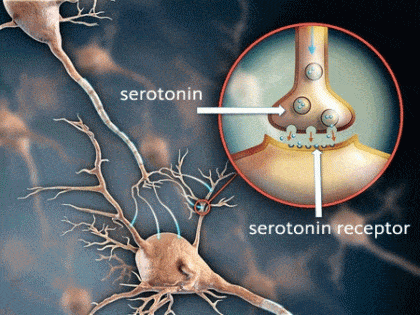
Working out sends a stream of amino acids into the muscles, except for tryptophan, which makes its way to the brain and serves as a precursor of serotonin.
Oxygen is also necessary for serotonin production, which may explain why cardio helps the brain produce more of this brain chemical.
3) Dopamine
This feel-good chemical is involved in pleasure, reward, and motivation.
Working out stimulates dopamine production in much the same way as drugs and alcohol, without all of the negative side effects!

Since dopamine affects learning and motivation, it helps the brain anticipate workouts as an alternative reward to addictive substances.
Along with working out, mucuna pruriens can help the brain restore dopamine levels naturally – and you can find this motivation-boosting herb in Calm Support.
4) Norepinephrine
Exercise increases levels of this neurotransmitter, which is produced in response to stress and regulates other neurotransmitters that directly inhibit stress.
In this way, conditioning allows the brain-body system to “practice” communication between its stress response systems.
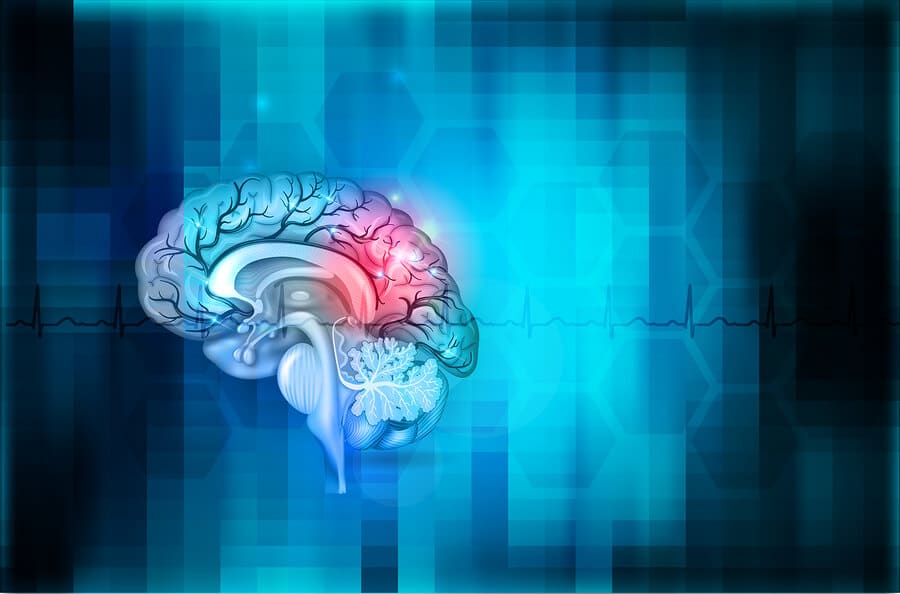
When our brain, adrenals, heart, and other organs involved in stress response are fine-tuned by training, we are less likely to overreact to everyday stressors.
5) Brain-Derived Neurotrophic Factor

Working out releases brain-derived neurotrophic factor (BDNF), which helps the brain produce new neurons and repair existing ones.
BDNF is a relatively recent discovery that was a missing piece of the puzzle for scientists who long suspected that exercise “rewires” the brain, but couldn’t pinpoint the exact mechanism.
Over time, conditioning helps the brain to forge new pathways and repair itself through a phenomenon called neuroplasticity.
There have been a growing number of stories about individuals who committed to both intense exercise and recovery, and who experienced profound changes in their neurochemistry.
6) Oxytocin
Regular exercise increases levels of oxytocin, which is our trust and bonding hormone.
Interestingly, oxytocin also accounts for why some people experience a “high” from attending group support meetings. Exercising with other people increases oxytocin levels even further than training alone, helping everyone get more out of the workout.
Oxytocin is so powerful that individuals with anti-social disorder who are treated with synthetic versions of this hormone often become more open and accepting of others.
After I quit drinking, I moved into an apartment with two great guys who became my lifting buddies. I soon realized that the best kind of talk therapy is laughing with good friends after a hard workout.
7) Inflammation
Regular exercise has been proven to reduce inflammation, which occurs throughout the body and is one of the fundamental causes of disease.
Inflammation in the gut from poor diet and lack of movement can negatively affect brain health. People who have spent months or years abusing alcohol and other substances typically have higher levels of inflammation.
Cancer, heart disease, and neurodegenerative conditions (like dementia) all have inflammation as a contributing factor.
8) Hormesis
Hormesis refers to stress that causes our systems to become stronger. Unlike sitting for prolonged periods or inhaling toxins, exercise is an example of hormetic stress that we evolved to experience.
In response to regular activity, our bodies produce antioxidant-like compounds that repair our cells, boost our immune systems, and reduce the risk of chronic diseases.
Training your brain to embrace hormetic stressors can help you beat addiction and improve your long-term health.
When I began lifting weights regularly after quitting alcohol, I noticed that my bones became denser, my muscles got stronger, and even my mood became more resilient.
9) Hormonal Balance
Exercise and a diet high in healthy fats can restore the production of sex hormones that drastically enhance our sense of well-being.
Alcohol wreaks havoc on testosterone levels, making men in particular susceptible to depression.
Whether you’re a man or a woman, excising alcohol from your life and integrating conditioning into your daily routine will result in more stable emotions and a renewed zest for life.
10) Self-Esteem
Improving fitness levels and body composition is a great way to build self-esteem, making us less likely to revert to destructive patterns of behavior.
As I began to associate working out with feeling mentally sharp and strong, I also began to associate alcohol with feeling mentally foggy, physically weak, and bloated.

Unlike the vicious cycle of addiction, exercise is a virtuous cycle that unifies the mind and body.
What Works Best?
Pick any form of exercise that you enjoy and that brings you closer to your personal goals.
If you’ve hit rock bottom and you’re lonely, one of the best ways to start over and incorporate fitness into your life is to sample some gym classes until you find one you enjoy – preferably with cool people you click with.
Expand your mind, forget about your self-imposed boundaries (“I’m not good at ___”), and blend fitness with a sense of adventure.
The point is to feel good and improve yourself, not to punish yourself or impress others.
Here are just a few forms of training that I’ve done in the past year, and which I never would have made time for if I hadn’t quit drinking:
- Rock climbing
- Paddle boarding
- Water skiing
- Beach volleyball
- Martial arts (boxing, BJJ)
- Heat yoga
- Hiking
- The DeRose Method (a holistic breathing/yoga system)
In each of these activities, I either met great people or strengthened bonds with friends who I normally wouldn’t have been able to spend a lot of time with.
My Routine
While I’m always up for trying new things, my basic routine for the past several years has been simple.
In the morning, I do a 20-minute workout, consisting of cardio, bodyweight exercises, and stretching. Usually, I’ll ride my bike a mile to a field and run 5 or 6 sprints at 100% effort. Then I’ll do the PASS routine from my book, which I’ll describe in the next section.
I lift weights at night, usually four or five times per week.
Whenever we can make time for it, my roommate and I go to the gym for a casual kickboxing / sparring session.
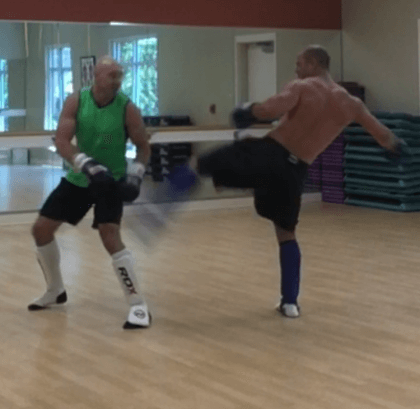
Lifting and martial arts are my favorite forms because they allow me to replace restlessness, negativity, and apathy with a sense of accomplishment.
My lifting sessions center around compound exercises like deadlifts, squats, rows, and bench presses. My routines are constantly changing and I draw from the following:
- Powerlifting exercises
- Kettlebell programs
- Olympic lifts
- TRX
- Gymnastics
- Jump rope
Nothing beats the euphoria that comes from lifting heavy weights. The word “heavy” is a relative term; it describes a weight that you can handle for 1-6 repetitions. It takes practice before you can lift heavy, and you should always warm up for a few sets first.
When I quit drinking, the first way I rewired my brain was to force it to anticipate a hard lift in the evening instead of alcohol.
I’ve since reframed the gym as my cathedral. I see weightlifting as my meditation and therapy wrapped into one activity with a myriad of other health and aesthetic benefits.
Once you rewire your brain in this way, it takes willpower to decide NOT to do your workouts.
I used to hate training my legs. Now heavy deadlifts and sparring sessions with a partner are my Xanax. I sometimes wonder how many prescription drugs I’ve avoided just by getting a good sweat in every day.
Does Exercise Help Recovery?
People who recover successfully tend to incorporate new lifestyle routines, often centering around healthier nutrition and consistent workouts. Over time, these new routines “crowd out” the old addiction.
In my book, I explain how I do a brief workout every morning that takes less than five minutes.
I’ve been doing this mini-workout along with my cardio for two years. The primary goal is not to burn calories or grow bigger muscles, but rather to strengthen your mind-body connection:
- Stimulate your nervous system
- Clear and calm your mind
I call this mini-workout the PASS Routine (as in “this too shall pass” – because it always makes restlessness and negativity disappear):
- Pushups – Pick a number and do them
- Air Squats – Pick a number and do them
- Stretching – Yoga hip openers
- Serenity – During the stretches, breathe in deep and count for 10 seconds as you exhale
Here are some pictures of myself working through the PASS Routine:
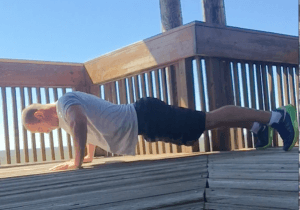
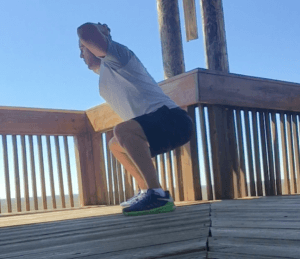
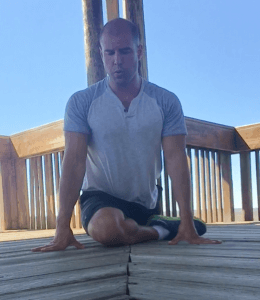
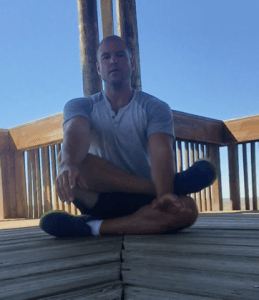
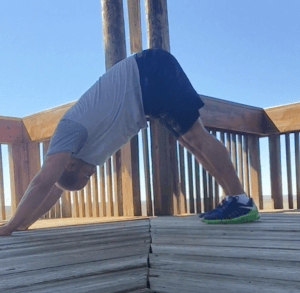
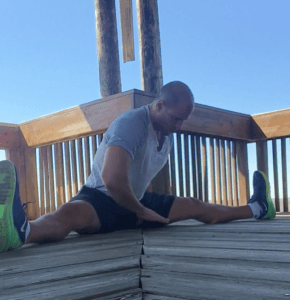
Clearly, I’m not an expert yogi. But this routine never fails to lift me out of my morning fog. The stretches clear my mind and help to prevent injuries from lifting and sparring.
Since I’ve been doing the PASS Routine for so long, I’ve noticeably improved in the following areas:
- Discipline
- Anxiety reduction
- Flexibility
- Mental clarity
- Metabolism
The push-ups and squats have an additional benefit: Research has shown that 1 minute of all-out training each day has the same benefits as 45 minutes of moderate exertion! (source)
How Do I Get Out of an Addiction?
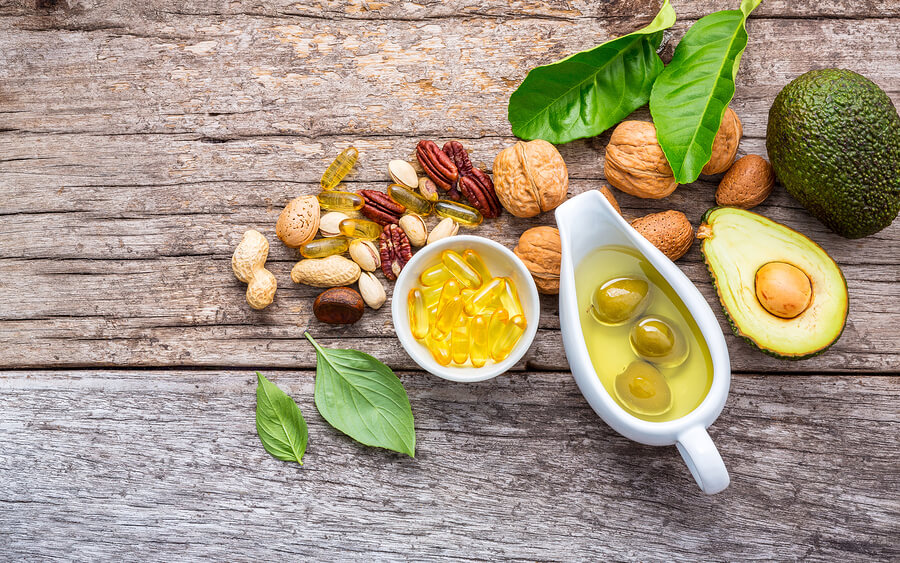
Exercise is not an end in itself; it is a manifestation of the continual drive to better oneself. A large part of self-improvement is optimizing the fuel that we put into our bodies.
After I quit drinking and educated myself about nutrition, the idea of putting toxic ethanol into my stomach began to sound absolutely revolting.
When your goal is total self-transformation, you start to realize how unhealthy and counterproductive drinking really is – which is to say, you realize how much drinking sucks.
This is a very powerful mindset change that you’ll rarely hear from addiction counselors, who often assume that your self-image is either a lost cause or a selfish distraction.
How to clean up your diet is a topic for another article, but these articles can help you learn more about how to use nutrition to your advantage to help you beat your bad habits:
These articles contain vital information for tackling your health holistically. Supplementation is a priceless tool that still helps me stay sane and optimized, long after I’ve beaten addiction.
If you’re still drinking or suffering from intense alcohol cravings, I strongly recommend that you start taking Calm Support to make your recovery much more comfortable.
Is Addiction Life Long?
Most rehab centers and recovery programs operate on the premise that addiction is a permanent disease. After spending several months steeped in traditional recovery ideology, I ultimately rejected this sacred cow.
Fascinating books have been written on this subject (including The Biology Of Desire, by Marc Lewis, PhD). Brain scans often shown to rehab patients, depicting “addict” brains vs “non-addict” brains, seem compelling at first.
The reality is that many repetitive behaviors can change brain scan imagery, including learning to drive a taxi. For a more complete picture, we should also be shown brain scans of fully recovered people. When you properly address the Bio-Psycho-Social-Spiritual aspects of recovery, you can change your brain yet again!
A growing number of people and recovery groups have begun to question the wisdom of attaching permanent labels like “addict,” “alcoholic,” or “powerless” to people for life. After I beat alcohol, I decided to forge a new identity that transcended both alcohol and mainstream recovery labels. You can do the same!
Why Exercise is Important in Recovery
While there is no single remedy, countless people have used fitness to their advantage in order to rewire their brains and leave ruthless addictions in their past.
I have to chuckle when I talk to people who seem to think that conditioning is bad because it’s narcissistic or because it’s a risky “cross-addiction.”
The most emotionally stable people I know all have one thing in common: they work out hard on a daily basis. Clearly, exercise does not belong in the same category as heroin or cocaine.
If you have any questions, please leave them in the comment box below.







I swim and hike, but know I need to add the deep stretches at the end of the day
I’m three days into the book and the 10 Day Challenge. I don’t have a gym buddy. I don’t go to a gym. But today, I regrouped my old tennis buddies into a game. I thought they’d long given up on me as I disappeared down into the bottle but we had a really fun (sweaty!) set of tennis. I put my whole body, brain and soul into it. I’m going back to do the same tomorrow morning!!
Hi. Loved all of your informative articles. We need more people like you in life to make life easier enjoyable, rewarding. Everything you have written is so honest and true to having a balanced, good and healthy lifestyle. Thank you.
Thank you Linda! Best of luck to you!
Excellent article, a great mix of science and benefits with sound advice on practical application. I’ve shared with my FB buddies and hopefully someone will take me up on the offer to become a gym buddy!
Awesome Ed, glad you enjoyed it and best of luck to you buddy!
Awesome information. So interesting how law of attraction works. Clearly my soul was looking for your words. I too am In Recovery not from substances but debt and underbeing; in the past I have used the gym and have been full on into yoga for the last year and a half. I am ready to gym it again and look what comes my way to encourage me Joining the gym again. Joining the gym was a massive decision as I left injured and disillusioned. Now I’ve found a gym that does what I love and would love to try, climbing,… Read more »
Hi Jo! Thanks for sharing this, and I’ve experienced the law of attraction working in strange ways myself. I agree that joining a gym – and even just having a solid set of lifting buddies – is a great way to forge new friendships. Good luck and keep it up!